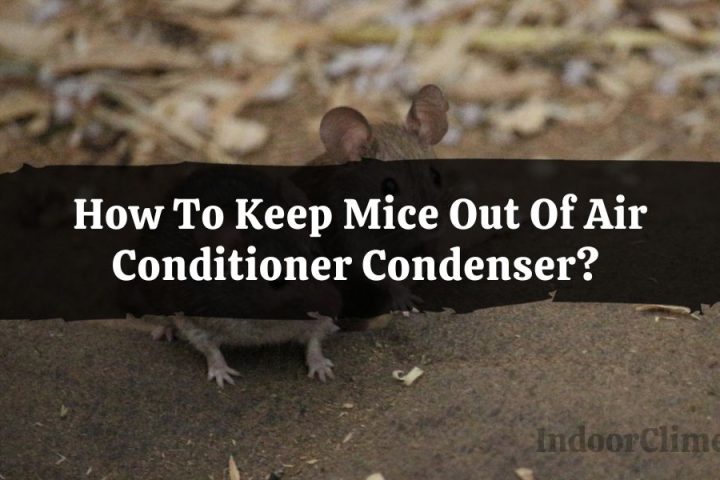If you’ve ever looked at the spec sheet for an air conditioner or a space heater, you may have spotted three distinct small letters hidden among an extensive list of numbers and abbreviations. BTU.
When considering how to heat and cool your house, it can be strange to see this term everywhere you go because the ordinary person doesn’t use it frequently daily.
What do you need to know about BTUs, and how significant are they?
What Is a BTU?
British Thermal Units
British Thermal Units, also known as BTUs, are units used to measure thermal energy. Since its introduction in the late 1800s, it has become one of the most widely used categorization units for heating and cooling equipment.
One pound of water requires one BTU of energy to be heated or cooled by one degree Fahrenheit at sea level.
It helps to understand how air conditioners operate if you want to comprehend BTU.
However, it’s acceptable if you don’t spend your days pondering how air conditioning units function and why they seem so effective at keeping your rooms cold and pleasant.
What Do BTUs Mean For Your AC?
It is equivalent to claiming that air conditioners are moving energy when we discuss how much heat they remove from your home. This is because your air conditioner uses how much power to achieve everything, as BTU indicated.
Therefore, if your air conditioner has 12,000 BTUs, it signifies that it takes 12,000 BTUs of heat each hour and transfers it outside to improve the indoor climate.
How Many BTU Air Conditioners Do I Need?
An air conditioner typically requires 20 BTU for every square foot of living area.
However, other factors, such as the height of your ceilings and the width of your windows and doorways, can need additional cooling capacity.
Multiply the length by the breadth to find the size of the room. The size of any rooms not connected by doors should be added together because the AC unit will need to cool both areas.
For the following situations, Energy Star advises making adjustments:
• Decrease the room’s capacity by 10% if it is excessively darkened.
• Increase capacity by 10% if the space is very sunny.
• If there are more than two occupants frequently, increase the temperature by 600 BTU per person.
• Increase the capacity by 4,000 BTU if the appliance is used in a kitchen.
Example. You have a 12 x 18 room size, so that’s 216 square feet.
216 x 20 = 4320 BTU. So, in this example, you should aim for an air conditioner with at least 4320 BTU, ideally more than 5500-6000, because you don’t want AC that will always work at maximum capacity, consuming more electricity.
Air Conditioner BTU And Room Size Chart
For those who don’t want to use their calculators, I made a table with approximately room size estimations for air conditioners with various cooling abilities to help you out:
| Cooling Capacity (BTU): | Room/Space Size: | Examples: |
| 2,000 BTU air conditioner room size: | 50-100 sq ft | 8×8 room, 10×10 room, small bedroom |
| 4,000 BTU air conditioner room size: | 101-200 sq ft | 12×12 room, 14×14 room |
| 5,000 BTU air conditioner room size: | 201-250 sq ft | tiny apartment, large bedroom, living room |
| 6,000 BTU air conditioner room size: | 251-300 sq ft | 16×16 room, living room |
| 8,000 BTU air conditioner room size: | 301-400 sq ft | 18×18 room, 20×20 room, large living room |
| 10,000 BTU air conditioner room size: | 401-500 sq ft | 22×22 room, tiny house |
| 12,000 BTU air conditioner room size: | 501-600 sq ft | 24×24 room, studio apartment |
| 14,000 BTU air conditioner room size: | 601-700 sq ft | small apartment, 2 rooms |
| 16,000 BTU air conditioner room size: | 701-800 sq ft | average apartment, compact house |
| 18,000 BTU air conditioner room size: | 801-900 sq ft | a one-story house, three-bedroom apartment |
| 20,000 BTU air conditioner room size: | 901-1,000 sq ft | larger apartment, office, small house |
| 24,000 BTU air conditioner room size: | 1,001-1,200 sq ft | large apartment, 4 rooms |
| 28,000 BTU air conditioner room size: | 1,201-1,400 sq ft | extra large apartment, medium-sized house |
| 32,000 BTU air conditioner room size: | 1,401-1,600 sq ft | very large apartment, medium-sized house |
| 36,000 BTU air conditioner room size: | 1,601-1,800 sq ft | 5-bedroom apartment, average-sized house |
| 40,000 BTU air conditioner room size: | 1,801-2,000 sq ft | penthouse apartment, above the average-sized house |
| 45,000 BTU air conditioner room size: | 2,001-2,250 sq ft | large house |
| 50,000 BTU air conditioner room size: | 2,251-2,500 sq ft | extra large house |
How Many BTU Per Square Foot Do I Need? (Table)
If you are looking for information in reverse, you know the size of the room/area and need to know how many BTUs are for that size; this chart will be helpful.
Here is a table with summarized BTU necessities:
| Square Footage | BTU Capacity |
| How many BTUs for 50 square feet? | 1,000 BTU |
| How many BTUs for 100 square feet? | 2,000 BTU |
| How many BTUs for 200 square feet? | 4,000 BTU |
| How many BTUs for 300 square feet? | 6,000 BTU |
| How many BTUs for 400 square feet? | 8,000 BTU |
| How many BTUs for 500 square feet? | 10,000 BTU |
| How many BTUs for 600 square feet? | 12,000 BTU |
| How many BTUs for 700 square feet? | 14,000 BTU |
| How many BTUs for 800 square feet? | 16,000 BTU |
| How many BTUs for 900 square feet? | 18,000 BTU |
| How many BTUs for 1,000 square feet? | 20,000 BTU |
| How many BTUs for 1,100 square feet? | 22,000 BTU |
| How many BTUs for 1,200 square feet? | 24,000 BTU |
| How many BTUs for 1,300 square feet? | 26,000 BTU |
| How many BTUs for 1,400 square feet? | 28,000 BTU |
| How many BTUs for 1,500 square feet? | 30,000 BTU |
| How many BTUs for 1,600 square feet? | 32,000 BTU |
| How many BTUs for 1,700 square feet? | 34,000 BTU |
| How many BTUs for 1,800 square feet? | 36,000 BTU |
| How many BTUs for 1,900 square feet? | 38,000 BTU |
| How many BTUs for 2,000 square feet? | 40,000 BTU |
| How many BTUs for 2,200 square feet? | 44,000 BTU |
| How many BTUs for 2,400 square feet? | 48,000 BTU |
| How many BTUs for 2,500 square feet? | 50,000 BTU |
| How many BTUs for 2,600 square feet? | 52,000 BTU |
| How many BTUs for 2,800 square feet? | 56,000 BTU |
| How many BTUs for 3,000 square feet? | 60,000 BTU |
Does Higher BTU Use More Electricity?

The truth is that a unit’s capacity to cool a more extensive area increases with its BTU rating. But size is not necessarily better.
Your unit’s energy consumption increases with the amount of BTU it produces. Therefore, you should get a suitable unit for your space if you are concerned about excessive energy bills.
Generally, a too-high BTU is not better for your air conditioning system. This is because a room with too high BTUs will be more humid.
Additionally, it will subject the appliance to additional wear and tear, necessitating more maintenance and reducing its lifespan. Finding the correct number of BTUs for the work at hand while not having too many for the space you’re cooling is the secret to comfort.
A more powerful air conditioner will quickly cool your space due to its excellent BTU rating.
However, as mentioned, this has some serious negatives, including increased humidity, more significant wear on the AC system, and higher energy costs.
What Happens If BTU Is Too High?

It depends on the space size. If you ask what would happen if your air conditioner had a larger BTU rating.
It also depends on the overall amount of space that has to be cooled; as a result, if the ceiling is higher than 10 feet, additional square feet need cooling power or more BTUs.
The BTU rating typically needs to be increased by 10% when high ceilings are present to chill the room effectively.
- A 5400 BTU unit is required to cool 150 square feet.
- 200 square feet need a 6000 BTU unit to be cooled.
- 340 square feet require 8000 BTU of cooling, so choose that unit.
- A 9000 BTU unit is necessary to cool 400 square feet.
- You need a 10,000 BTU unit to cool 450 square feet.
You will waste a lot of extra energy, and the air conditioner will cycle off too rapidly if you get an air conditioner with a more excellent BTU rating than necessary.
As a result, a room won’t cool down faster with a more oversized BTU air conditioner. On the other hand, more isn’t always better. A unit with too many BTUs will quickly cool the space and dampen it.
Therefore, an air conditioner is more suited to cool a more prominent space with more BTUs.
You might be tempted to cool your space more quickly and increase humidity, but this can have some pretty severe consequences:
Cool Your Space More Quickly
If your air conditioner’s BTU rating is too high, you may be able to cool your space more quickly and keep it cooler longer.
You can also use your AC unit more often because it will cool even when temperatures are high outside.
Increased Humidity
One of the biggest culprits is humidity. Humidity affects how well your AC works by causing condensation to build up on its coils, which can lead to corrosion.
This can also affect the performance of your ductwork and cause leaks in your system. You may also find that humidity levels are higher in rooms furthest away from windows, making them feel stuffy and uncomfortable.
Higher Energy Costs
The higher the BTU rating, the more energy you will use and pay for.
A high-BTU air conditioner can also cost more than an average-sized unit.
If you live in a hot climate where temperatures are often above 90 degrees Fahrenheit (32 degrees Celsius), you should consider getting a larger unit with higher BTU ratings.
What Happens If My AC BTU Is Too Low?

If there aren’t enough BTUs, the room will never get relaxed, and the unit will run nonstop.
Air conditioners remove heat and humidity from your house, as was already explained. However, it won’t all be absorbed if your BTU is much lower than the available square footage.
As a result, all the benefits of paying for an AC unit to run will be completely undone, and you will sit in a room that feels as hot as the outside.
Unsurprisingly, a small air conditioner will have difficulty cooling your house. The square footage it is trying to cool is too massive for its output capacity. Therefore, it will run longer cycles than it should.
Air conditioners that are too small will never be able to cool the space sufficiently, which prevents them from completing healthy on-and-off cycles. This additional wear and strain will shorten your AC’s lifespan, increasing repair expenses.
If you have low BTU with your AC, chances are:
Your Air Conditioning Never Stops
Your air conditioner will continue to attempt to reach that temperature if it is too tiny for the size of your home, but it will be ineffective because it cannot chill such a vast area. This causes it to run indefinitely and never finish a cycle.
Low Airflow
This can also indicate that your air filters are unclean. However, if you’ve cleaned or replaced your air filters and still can’t tell if more air is coming out of your vents, you might have an air conditioner with low BTU efficiency that is too small for your house.
Your Home Is Never Cool Enough
One potential cause for a lower BTU is an AC failing to chill your home adequately.
These include dirty coils, air filters, condensate drain lines, and refrigerant leaks.
If none apply and your house isn’t cool enough, an undersized AC with a low BTU unit might be the problem.
FAQ
Is 7,000 BTU or 10,000 BTU enough for a bedroom?
Most typical bedrooms and offices with a covered area of 250–300 square feet can be cooled with a 7,000 BTU window or portable air conditioner.
However, an air conditioner with a power output of 7,000 BTUs cannot chill a large area or many rooms.
Meanwhile, up to 500 square feet of a room may be comfortably cooled by a 10,000 BTU air conditioner.
However, if you want to be safe (and perhaps even go a little beyond in a good way), you should install 10,000 BTU air conditioners in 300- to 400-square-foot rooms.
How many BTUs do I need to cool 1,000 square feet?
Your cooling requirements depend on how much space you wish to chill in with air conditioning, whether just one room or your entire house.
However, the general rule of thumb for cooling is 20 BTU per square foot, depending on the size of the cooling area.
As you can see, 1000 square feet of space requires around 20,000 BTU to chill. 20,000 BTU is the output of some window air conditioners.





